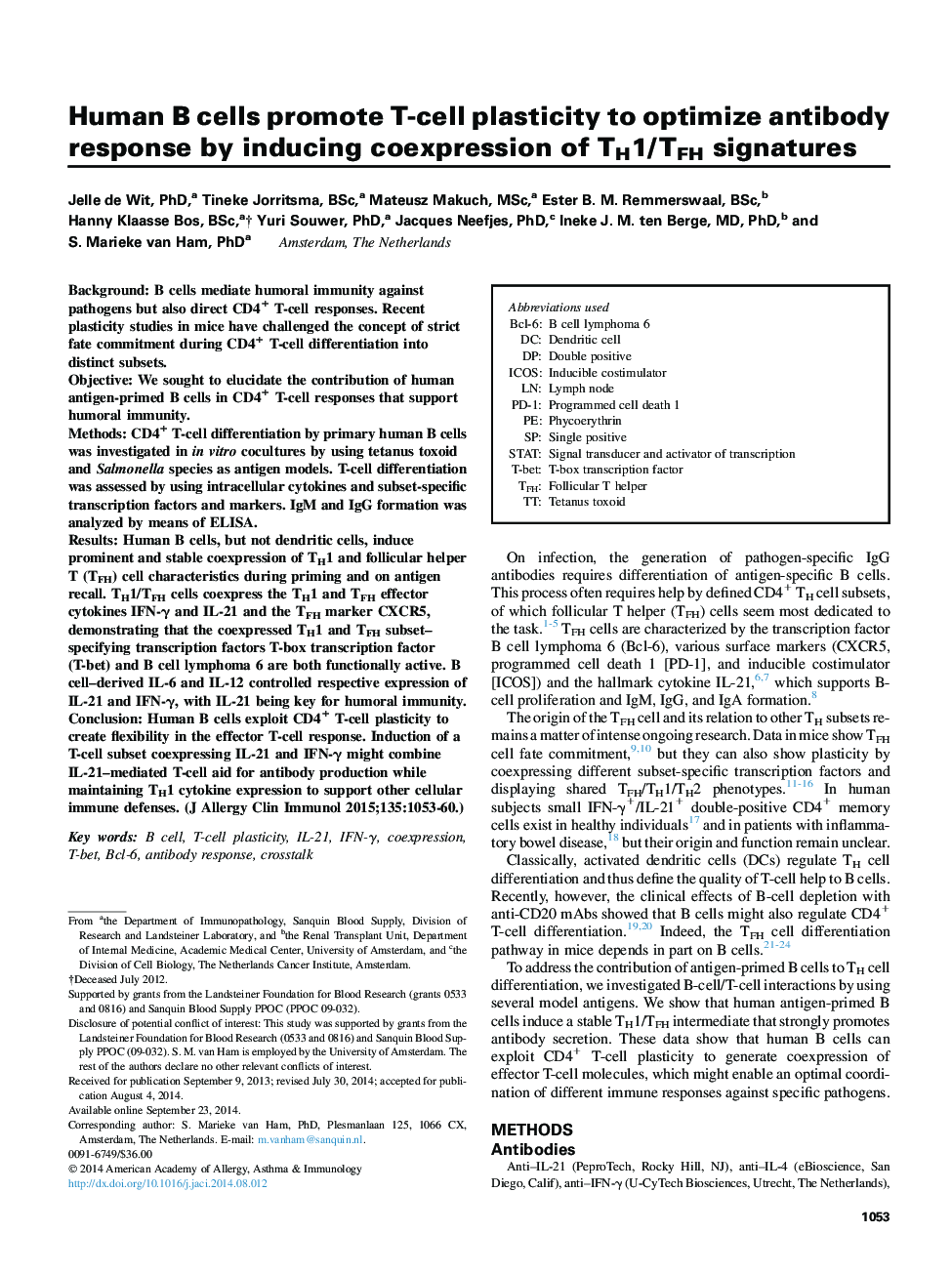| Article ID | Journal | Published Year | Pages | File Type |
|---|---|---|---|---|
| 6064107 | Journal of Allergy and Clinical Immunology | 2015 | 8 Pages |
BackgroundB cells mediate humoral immunity against pathogens but also direct CD4+ T-cell responses. Recent plasticity studies in mice have challenged the concept of strict fate commitment during CD4+ T-cell differentiation into distinct subsets.ObjectiveWe sought to elucidate the contribution of human antigen-primed B cells in CD4+ T-cell responses that support humoral immunity.MethodsCD4+ T-cell differentiation by primary human B cells was investigated in in vitro cocultures by using tetanus toxoid and Salmonella species as antigen models. T-cell differentiation was assessed by using intracellular cytokines and subset-specific transcription factors and markers. IgM and IgG formation was analyzed by means of ELISA.ResultsHuman B cells, but not dendritic cells, induce prominent and stable coexpression of TH1 and follicular helper T (TFH) cell characteristics during priming and on antigen recall. TH1/TFH cells coexpress the TH1 and TFH effector cytokines IFN-γ and IL-21 and the TFH marker CXCR5, demonstrating that the coexpressed TH1 and TFH subset-specifying transcription factors T-box transcription factor (T-bet) and B cell lymphoma 6 are both functionally active. B cell-derived IL-6 and IL-12 controlled respective expression of IL-21 and IFN-γ, with IL-21 being key for humoral immunity.ConclusionHuman B cells exploit CD4+ T-cell plasticity to create flexibility in the effector T-cell response. Induction of a T-cell subset coexpressing IL-21 and IFN-γ might combine IL-21-mediated T-cell aid for antibody production while maintaining TH1 cytokine expression to support other cellular immune defenses.
